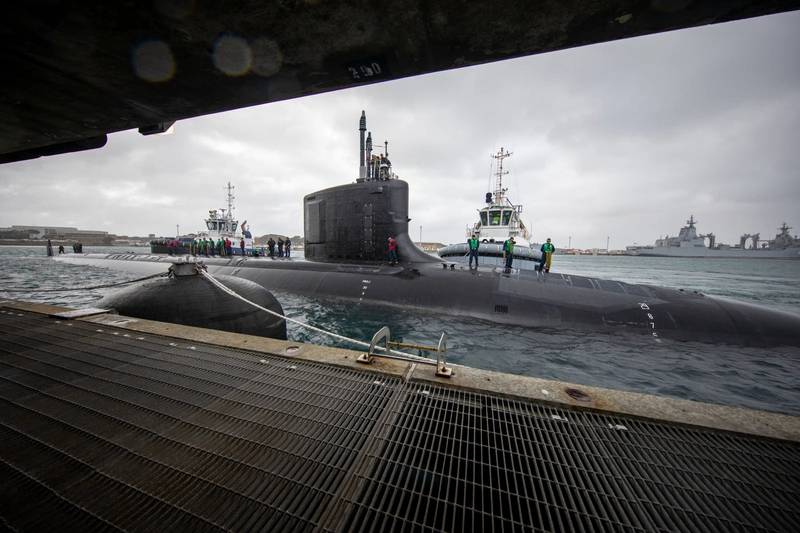Australia Conducts First Maintenance of US Nuclear Submarine
A U.S. nuclear-powered submarine will undergo maintenance in Australia for the first time on Friday, a key step by AUKUS partners to deter aggression in the Indo-Pacific, the defense ministers of Australia, Britain and the United States said.
Australian personnel trained with the United States and Britain over the past year ahead of the submarine maintenance at HMAS Stirling in Western Australia, involving personnel from the three nations.

"Our navies are committed to reinforcing the same guiding principles within Australia that have allowed the United States and United Kingdom to safely operate nuclear-powered ships for nearly 70 years," the ministers said in a joint statement.
The partners in the AUKUS pact were committed to setting the highest nuclear non-proliferation standard for acquisition of a conventionally-armed, nuclear-powered submarine capability for Australia, they added.
The statement cited U.S. defense secretary Lloyd Austin, Australian Defense Minister Richard Marles and Britain's defense secretary, John Healey.
A U.S. Virginia-class submarine, Hawaii, and a U.S. service ship with equipment and maintenance crew have arrived at HMAS Sterling for the maintenance, generally done in U.S. submarine ports.
The Australian base will host a rotational presence of one British Astute-class and up to four U.S. Virginia-class submarines from 2027.
That will build Australia's experience in operating a fleet of conventionally-armed, nuclear-powered submarines from next decade.
Allaying concern about nuclear waste storage within Australia, which lacks a nuclear power industry, its defense department said no radiological material would be transferred ashore during maintenance.
Last week, the AUKUS partners reduced defense export controls between Australia, Britain and the United States, removing a hurdle in the path of the maintenance task.
Australia will acquire U.S. nuclear-powered attack submarines and jointly develop with Britain and the United States a new class of conventionally armed, nuclear-powered submarine over the next two decades.
The rotations of U.S. nuclear submarines through Australia boosts deterrence in the Indo-Pacific, where China is putting the Philippines under pressure in the disputed waterway of the South China Sea, U.S. lawmaker Michael McCaul said last week.
The chair of the U.S. House Foreign Affairs Committee, McCaul was speaking during a visit to Sydney.
U.S. submarine maintenance in Australia is a step helping to "better deter aggression in the region and uphold the rules-based international order", the ministers added in Friday's statement.
Drills by U.S. B-2 stealth bomber aircraft in Queensland on the east coast include aerial refueling by the Royal Australian Air Force, the defense department said, after plans flagged last month for an increased rotational presence of U.S. forces.
(Reuters - Reporting by Kirsty Needham; Editing by Clarence Fernandez)
